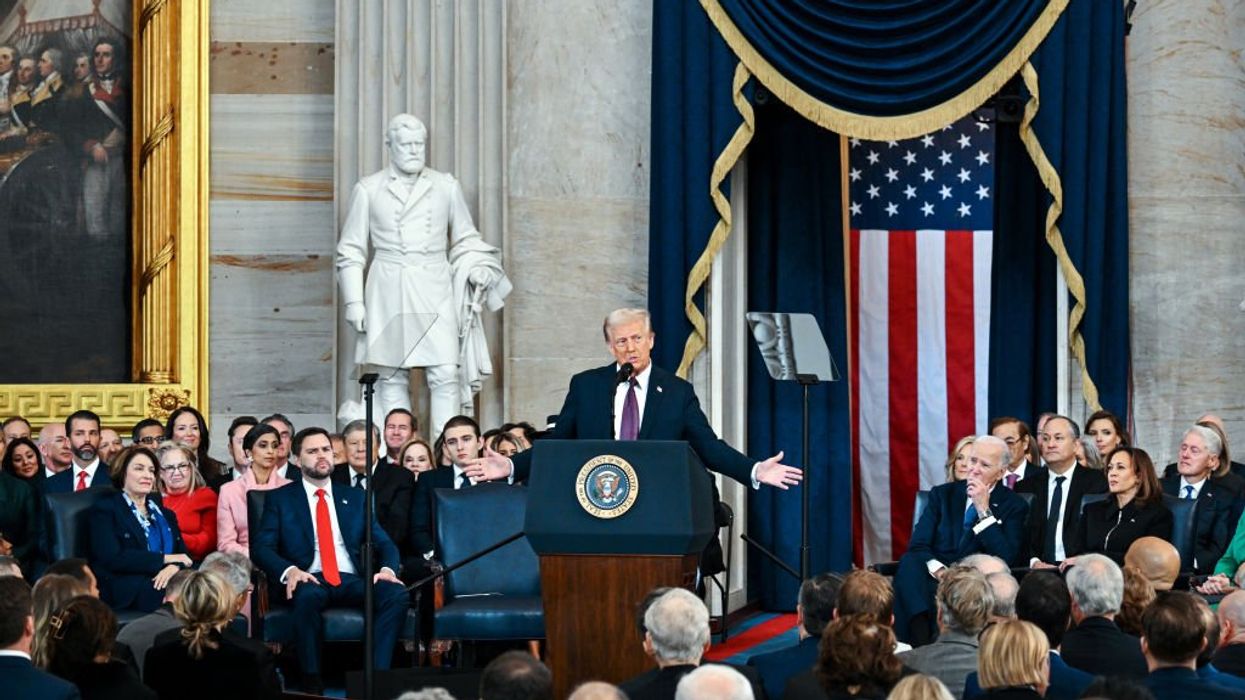The Fulcrum introduces Congress Bill Spotlight, a report by Jesse Rifkin, focusing on the noteworthy legislation of the thousands introduced in Congress. Rifkin has written about Congress for years, and now he's dissecting the most interesting bills you need to know about, but that often don't get the right news coverage.
President Donald Trump falsely claimed his January 6, 2021 speech preceding the Capitol Building riot “had more people” in attendance than Dr. Martin Luther King Jr.’s “I Have a Dream” speech.
What the bill does
In January, Trump's second inauguration coincidentally fell on MLK Day.
In response, the Proper Celebration of Martin Luther King, Jr. Day and Inauguration Day Act would delay MLK Day by one day, to the third Tuesday in January, in years where it conflicts with a presidential inauguration.
The bill was introduced jointly by one Republican and one Democrat: Reps. Tom Barrett (R-MI7) and Gregory Meeks (D-NY5).
Why would MLK Day be moved, rather than the inauguration? The inauguration’s date is set by the Constitution’s 20th Amendment, while MLK Day is set by a 1983 federal law. So while it would take another constitutional amendment to move the inauguration, requiring higher numerical thresholds for ratification, it would only take a “regular” bill to change MLK Day.
Context
Martin Luther King Jr. Day is a federal holiday honoring the assassinated civil rights leader, Nobel Peace Prize winner, and Time Magazine 1963 Person of the Year.
Inaugurations are always held on January 20. MLK Day is always commemorated on the third Monday in January, which occasionally happens to fall on January 20. (Even though Dr. King’s actual birthday was January 15.)
Ever since MLK Day was first celebrated as a federal holiday in 1986, it’s coincided with an inauguration only twice: 1997 for Bill Clinton’s second inaugural, plus 2025 for Trump’s.
The next such occurrence won’t happen again until 2053, seven presidential elections from now. For comparison, Vice President J.D. Vance was elected last November at age 40. If the vice president (or even the president) who’s inaugurated in 2053 is the same age, they’d only be 12 now.
What supporters say
Supporters argue that both major observances should receive their respective full credit and attention, rather than cannibalizing each other.
“[MLK] Day and Inauguration Day both have profound significance in the U.S., and neither should ever overshadow the other,” Rep. Barrett said in a press release. “Our bipartisan bill makes a simple but important change to ensure the peaceful transfer of power and Dr. King’s enduring legacy both receive the full recognition they deserve. [We should] preserve these momentous occasions that undoubtedly deserve their own days of celebration as a nation.”
Nothing in that press release, from either the Republican or Democratic cosponsor, explicitly mentions Trump.
What opponents say
One surprising opponent: MLK’s daughter Bernice King. She opposes Trump, yet still found a silver lining in his inauguration’s timing.
“A Trump win could potentially set in motion a perilous and oppressive presidential administration, that would undermine and deny the hard-fought battle for civil and human rights for which my parents and so many others sacrificed,” she said in an interview with The Independent.
Yet, “I’m glad that if it was going to happen, it happened on the King holiday, because Dr. King is still speaking to us.” Simultaneously honoring her father’s ideals demonstrates how “we have to commit ourselves to continuing the mission of protecting freedom, justice, and democracy in the spirit of my father.”
Odds of passage
Besides the two aforementioned bipartisan cosponsors, the bill has not attracted a single other cosponsor since its mid-March introduction.
It awaits a potential vote in the House Oversight and Government Reform Committee.
The Fulcrum recently covered the Honor Inauguration Day Act, another bill inspired by Trump’s 2025 inauguration. The American flag almost flew at half-staff at the Capitol Building during the ceremony, due to the government’s official 30-day mourning period for former President Jimmy Carter’s death. The bill would require the Stars and Stripes to fly at full height on inauguration days.
The difference is, while the MLK Day bill has bipartisan cosponsorship, that bill is entirely Republican.
Jesse Rifkin is a freelance journalist with the Fulcrum. Don’t miss his report, Congress Bill Spotlight, on the Fulcrum. Rifkin’s writings about politics and Congress have been published in the Washington Post, Politico, Roll Call, Los Angeles Times, CNN Opinion, GovTrack, and USA Today.
SUGGESTIONS:
Congress Bill Spotlight: No Invading Allies Act
Congress Bill Spotlight: Suspending Pennies and Nickels for 10 Years
Congress Bill Spotlight: Trump’s Birthday and Flag Day Holiday Establishment Act




















Trump & Hegseth gave Mark Kelly a huge 2028 gift